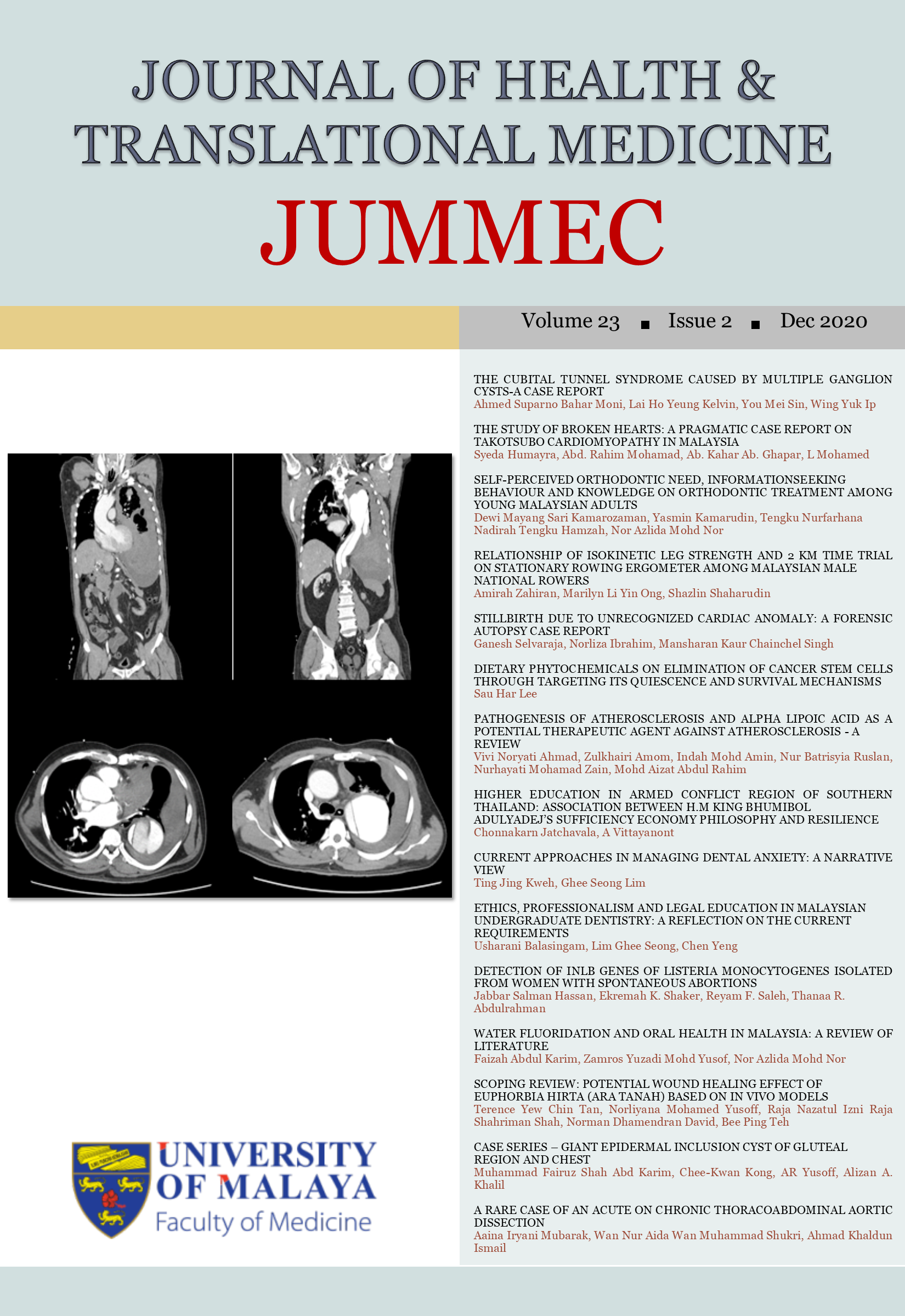HIGHER EDUCATION IN ARMED CONFLICT REGION OF SOUTHERN THAILAND: ASSOCIATION BETWEEN H.M KING BHUMIBOL ADULYADEJ’S SUFFICIENCY ECONOMY PHILOSOPHY AND RESILIENCE
Received 2020-01-08; Accepted 2020-06-16; Published 2020-11-12
DOI:
https://doi.org/10.22452/jummec.vol23no2.8Keywords:
King Bhumibol Adulyadej, sufficiency economy philosophy, resilience, armed conflict, university students, ThailandAbstract
Background: This research aimed to examine the association between resilience and lifestyle in line with H.M. King Bhumibol Aduyadej’s sufficiency economy philosophy (SEP) among university students studying in restive insurgent areas of Southern Thailand.
Methods: Data were collected on a single occasion between 8 August 2018 and 8 October 2018, at Prince of Songkla University, Pattani campus, located in the restive areas of Southern Thailand. A total of 443 university students were assessed using the 20-item Thai Resilience Quotient screening test, and 35-item questionnaire for lifestyle following H.M. King Bhumibol Aduyadej’s SEP. Data were analyzed by using R software package for descriptive analysis, Chi-square and logistic regression.
Results: Of the 443 university students who participated in the survey, most participants were Thai, female and Muslim (94.1%, 80.3% and 75.5%, respectively). Most of them perceived that they lived sufficiently, following H.M. King Bhumibol Aduyadej’s SEP, together with normal or higher than normal level of resilience (67.9% and 64.8%, respectively). The association between resillience in total to perception of lifestyle, in line with H.M. King Bhumibol Aduyadej’s SEP , was statistically significant. Resilience was categorized by domains of emotional stability, willpower and coping skill (all p-values<0.001). Sufficient living according to the late king’s SEP was found to be 3.42 times higher than in students who lived non sufficiently (95%CI=2.24, 5.22).
Conclusion: Resilience and self-perceived lifestyle according to H.M. King Bhumibol Aduyadej’s SEP were found to have a statistically significant association among university students who studied in restive insurgent areas of South Thailand.
Downloads
Downloads
Published
Issue
Section
License
All authors agree that the article, if editorially accepted for publication, shall be licensed under the Creative Commons Attribution License 4.0 to allow others to freely access, copy and use research provided the author is correctly attributed, unless otherwise stated. All articles are available online without charge or other barriers to access. However, anyone wishing to reproduce large quantities of an article (250+) should inform the publisher. Any opinion expressed in the articles are those of the authors and do not reflect that of the University of Malaya, 50603 Kuala Lumpur, Malaysia.


